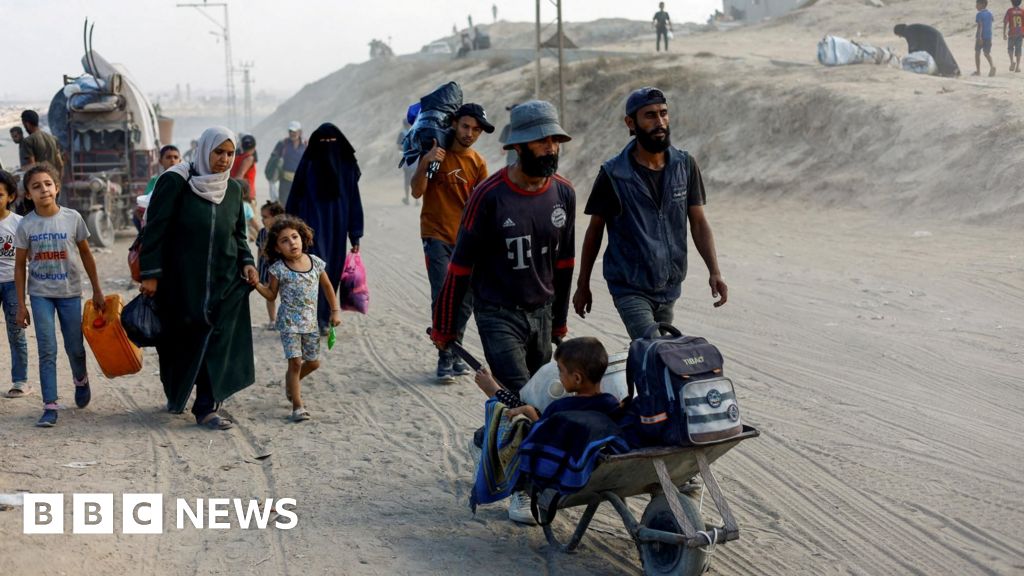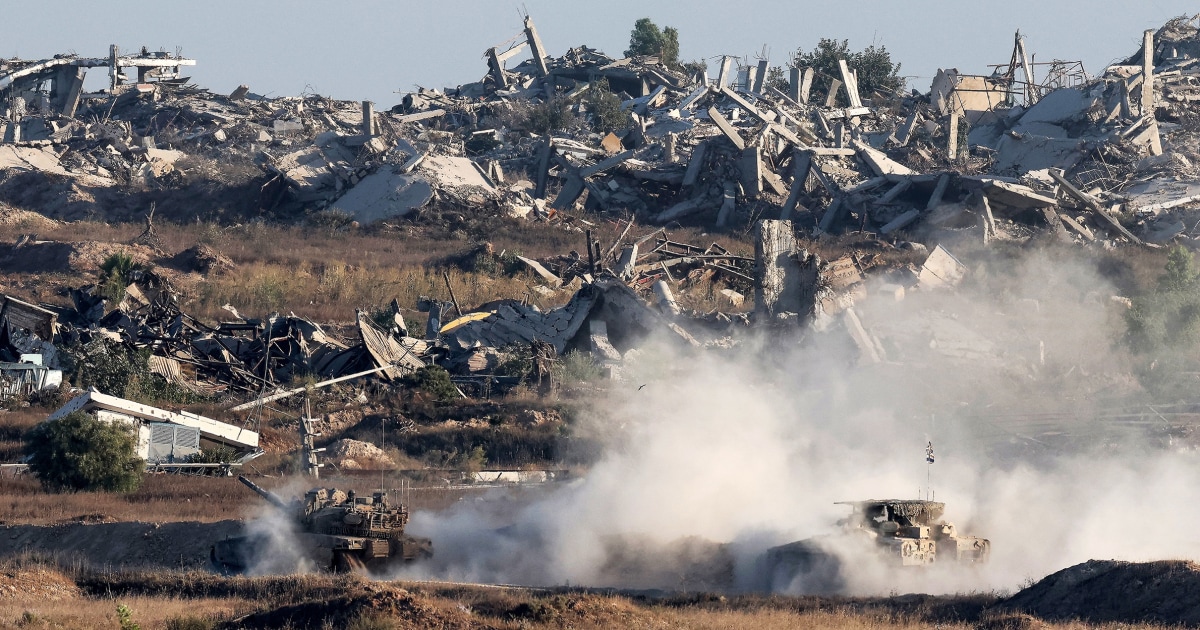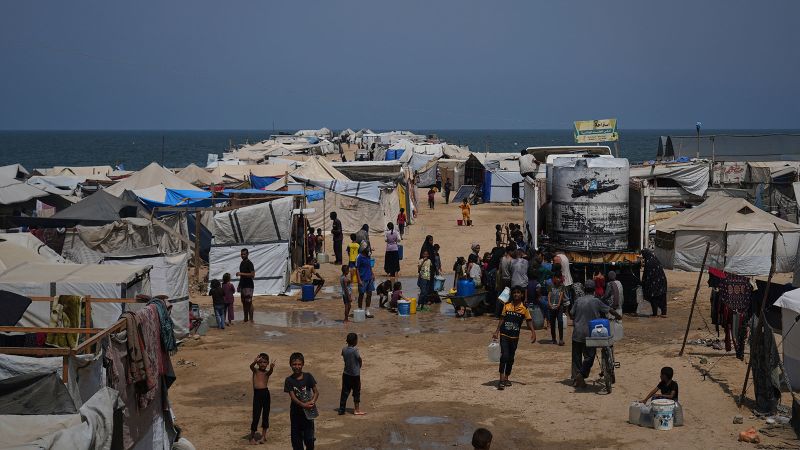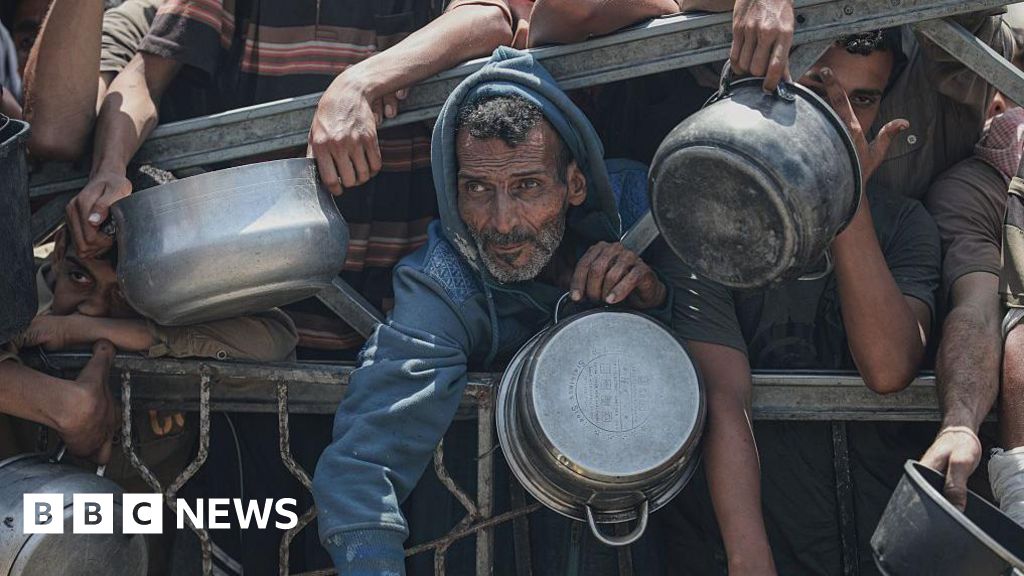The Israeli-Palestinian Conflict and the Impact on Gaza

Introduction
As Israeli troops advance in Gaza City, thousands of Palestinians are fleeing the area, seeking safety from the ongoing conflict. The offensive, which aims to defeat up to 3,000 Hamas fighters, has drawn international condemnation. The situation in Gaza has been volatile for years, and the recent escalation has only added to the suffering and displacement of the Palestinian people.
Key Details
The Israeli-Palestinian conflict has its roots in the late 19th century, with both sides claiming the land as their own. The current offensive has been met with heavy resistance from Hamas, the militant group that controls Gaza. The use of airstrikes and artillery by Israel has resulted in heavy casualties and destruction in the densely populated city. Many Palestinians are being forced to flee their homes, seeking refuge in UN-run schools or with relatives in safer areas.
Impact
The ongoing conflict and displacement of Palestinians in Gaza have had a devastating impact on the lives of innocent civilians. The UN estimates that over 70,000 people have been displaced by the recent violence, with no end in sight. The situation has also drawn international criticism, with calls for a ceasefire and a lasting solution to the conflict. The continuous cycle of violence and displacement in Gaza highlights the urgent need for a peaceful resolution and the protection of human rights for all those affected.
About the Organizations Mentioned
Hamas
**Hamas** is a Sunni Islamist Palestinian nationalist organization that functions both as a political party and a militant group, primarily operating in the Gaza Strip, which it has governed since 2007. Founded in 1987 by Ahmed Yassin amid the First Intifada, Hamas emerged from the Muslim Brotherhood and initially had covert Israeli support as a counterweight to the secular Palestinian Liberation Organization (PLO)[3][1]. It combines political governance with an armed wing, the al-Qassam Brigades, committed to armed resistance against Israel, which it refuses to recognize as a legitimate state[1][3]. Hamas’s political rise culminated in a 2006 electoral victory in the Palestinian Legislative Council, campaigning on anti-corruption and resistance platforms. After violently seizing Gaza from the rival Fatah faction in 2007, Hamas has maintained de facto control there despite international isolation and blockades imposed by Israel and Egypt[3]. Its governance has been marked by repeated conflicts with Israel, including major wars in 2008–09, 2012, 2014, 2021, and the ongoing intense conflict triggered by Hamas’s surprise October 2023 attack killing nearly 1,200 Israelis and taking hostages[1][2][3]. Hamas benefits from regional support, especially from Iran, which supplies funding and weapons, as well as financial and political backing from Turkey and Qatar. These alliances form part of a broader "axis of resistance" against Israel, which includes groups like Hezbollah and Palestinian Islamic Jihad[2]. Hamas also operates fundraising networks globally, sometimes using charities as fronts to support its military activities[4]. The group is designated a terrorist organization by many countries, including the United States, which has increased military aid to Israel following recent escalations[2][6]. Despite modifying its 1988 charter in 2017 to soften some language, Hamas continues to reject Israel’s legitimacy and pursues all forms of resistance[1]. Its enduring political
UN
The **United Nations (UN)** is a global intergovernmental organization founded in 1945 with the primary mission of maintaining international peace and security, promoting human rights, and fostering sustainable development. The UN was established in the aftermath of World War II, succeeding the League of Nations, with the aim of preventing future wars and promoting global cooperation. ### History and Structure The UN is headquartered in New York City, with additional offices in Geneva, Nairobi, Vienna, and The Hague. It comprises six principal organs: the **General Assembly**, **Security Council**, **Economic and Social Council**, **International Court of Justice**, **Secretariat**, and **Trusteeship Council**. The organization includes 193 member states and two observer states, making it the most representative global body. ### Key Functions and Achievements - **Peacekeeping and Security**: The UN plays a crucial role in maintaining international peace and security through peacekeeping missions and conflict resolution efforts. - **Human Rights and Development**: It promotes human rights, supports refugees, and works towards sustainable development through specialized agencies like **UNICEF** and **WHO**. - **Economic and Social Development**: The UN has been instrumental in economic and social development, particularly during the decolonization era. It has also been recognized for its leadership in peace and human development, with several agencies awarded the **Nobel Peace Prize**. ### Current Status and Challenges Despite its achievements, the UN faces ongoing challenges, including debates over its effectiveness, financial contributions, and perceived biases. Recent global events, such as the COVID-19 pandemic, have highlighted the complexities and criticisms surrounding the UN's role. ### Notable Aspects - **Global Influence**: The UN serves as a platform for dialogue among nations, addressing global challenges and promoting international cooperation. - **Specialized Agencies**: It has 15 specialized agencies that perform diverse functions, from facilitating international travel to addressing pandemics. - **International Law**: The UN plays a significant role in


















